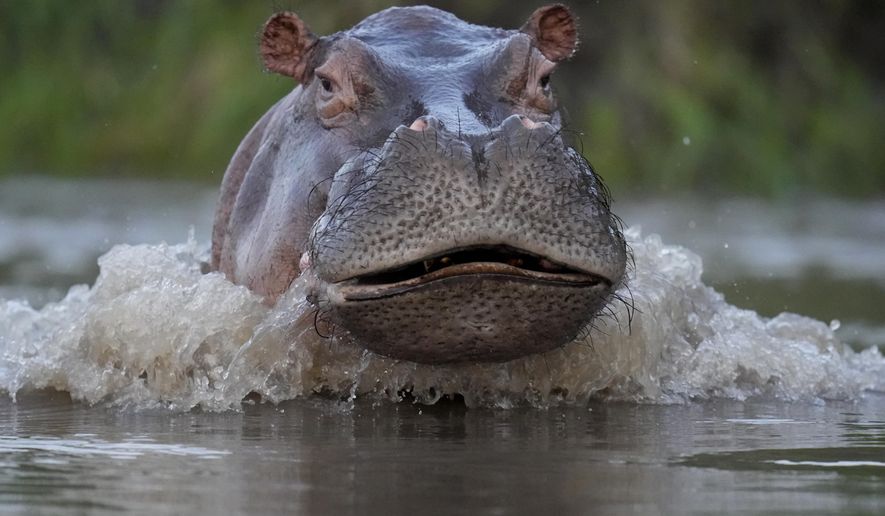Animal sanctuary facilities in India and Mexico have agreed to take in 70 invasive African hippopotamuses that descend from those once owned by Colombian drug lord Pablo Escobar.
Originally, four hippos, three females and a male, were kept in captivity at the ranch of cocaine kingpin Pablo Escobar, based in Medellin, Colombia.
When Escobar was killed in 1993, the hippos, which are native to sub-Saharan Africa and do not naturally exist in the Americas, were able to escape, adapting to the local environment and managing to increase their numbers.
There are now around 130 hippos living in the wild in Magdalena Medio, a subregion of Antioquia Department (akin to a U.S. state).
Gov. Anibal Gaviria told lawmakers in the department’s assembly Wednesday that it would be a delicate operation.
“It’s a lot of work to achieve the export of 70 hippos from that sector of Antioquia. This is a job that has required enormous tact from a political, environmental and technical point of view,” Mr. Gaviria said, according to a computer translation of Colombia’s El Tiempo newspaper.
Department officials now must obtain approval from Colombian national authorities to export the beasts. Mexican zoo authorities have agreed to help facilitate the transfer of the hippopotamuses, which have yet to be captured.
Of the 70 marked for export, 10 would be sent to the Ostok Sanctuary in Culiacan in Mexico’s, Sinaloa state, and the remaining 60 would be shipped to India.
All the transferred animals would be juveniles, so as to limit the reproductive growth of the wild population in Colombia, where the hippopotamus faces no natural predators.
However, the agreement with India is not up to the Colombian national government, but was instead arranged by Ernesto Zazueta, president of the Mexican non-governmental organization AZCARM, which represents Mexican zoos, aquariums and hatcheries.
“The agreement is made with Mexico and he, who has been doing rescues all his life and is dedicated to that, is the one who makes the link … Everything we had to do on our behalf has already been done, now it depends on the authorizations from the national government,” Lina Marcela de los Rios, animal protection manager of Antioquia, told the department’s El Colombiano newspaper.
The costs of transporting the hippos would be borne by their recipients. In addition to India and Mexico, facilities in Ecuador, Botswana, and the Philippines have expressed interest in acquiring some Colombian hippopotamuses.
• Brad Matthews can be reached at bmatthews@washingtontimes.com.




Please read our comment policy before commenting.